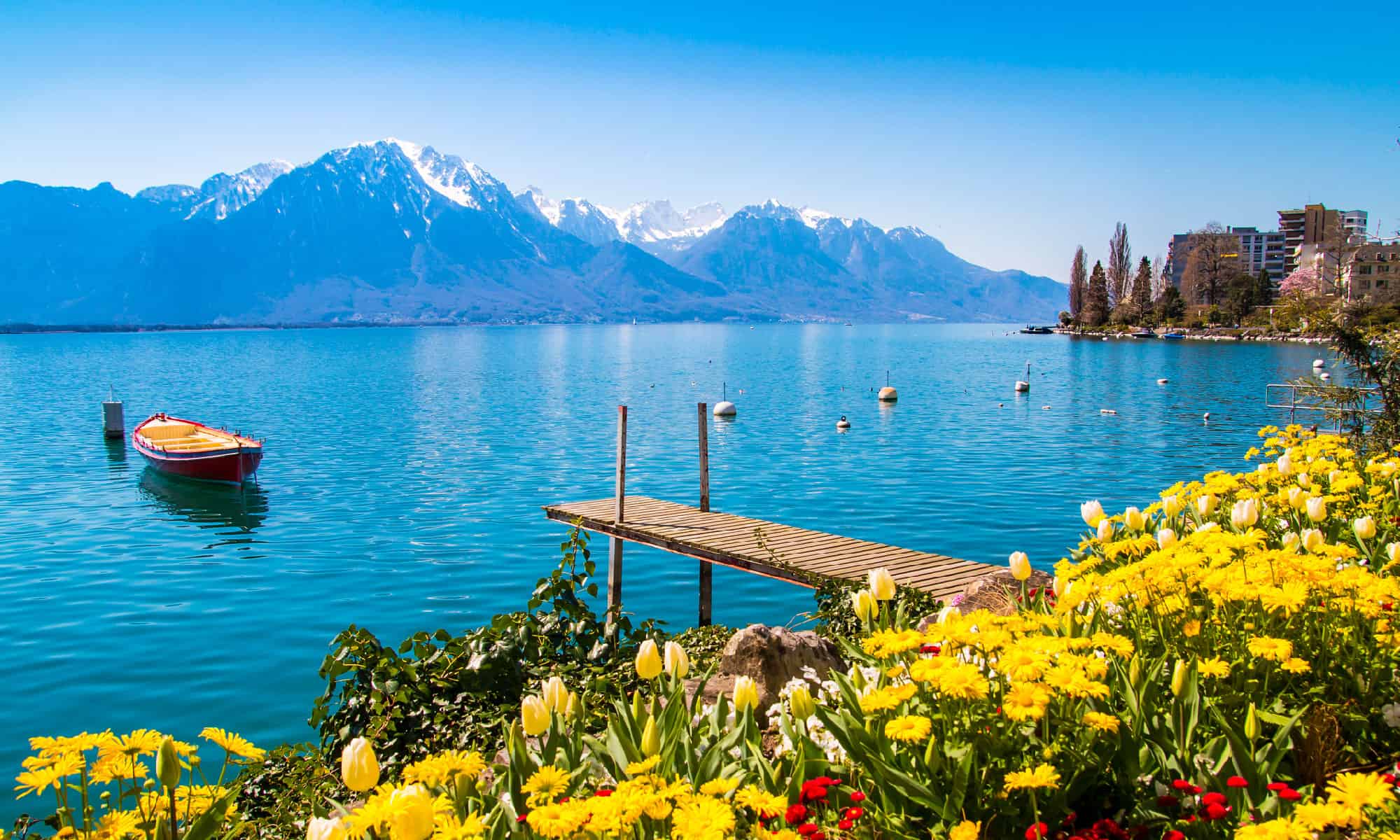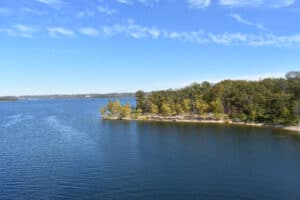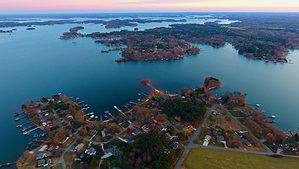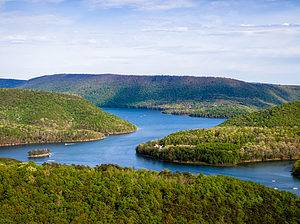Switzerland is the most expensive country in the world. It is a country known for high prices, chic shops, upscale restaurants, and beautiful scenery. Switzerland’s nature is unique — from its forested areas to its snow-capped mountains and gorgeous lakes and rivers. Lake Geneva sits on Switzerland’s western side. And when people think of the lake, they think of several adjectives: beautiful, pristine, clean, and fancy.
Unfortunately, we have to be the bearer of bad news. Lake Geneva is beautiful, but it is not pristine. The lake’s water quality is really bad. It is riddled with pollutants, mainly plastics and microplastics, hazardous chemicals, raw sewage, and other harmful materials.
Let’s take a look at how polluted Lake Geneva really is and go line by line to learn what causes its pollution.
Where Is Lake Geneva?
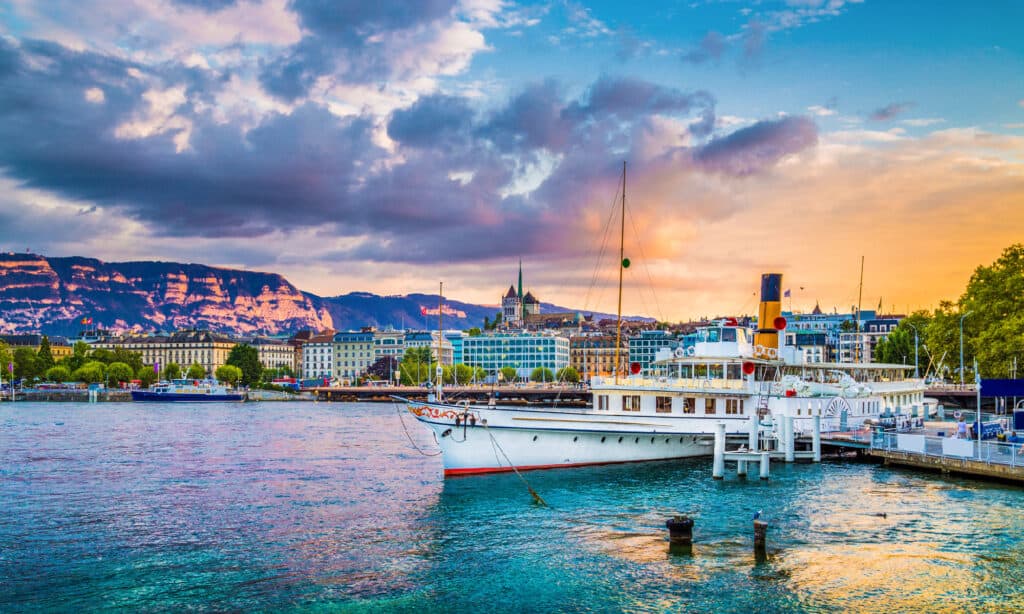
Switzerland has four official languages: French, Italian, Swiss-German, and Romansh.
©iStock.com/bluejayphoto
Lake Geneva is located next to the Alps mountain range and it shares a border between Switzerland and France. At the southern part of the lake sits the city of Geneva, which is one of the wealthiest cities in the country. And on the north side of the river sits what is called the “Swiss Riviera,” between the cities of Lausanne and Montreux.
What Contributes to Lake Geneva’s Pollution?
When it comes to the pollution of Lake Geneva, there are many culprits to point fingers at. Four main problems have contributed to the lake’s pollution. Let’s take a look at each of them below.
Plastics and Microplastics
According to the non-profit organization Oceaneye, Lake Geneva has as many microplastics as in the oceans. That is to say that there is an equal quantity of microplastics in all of the world’s oceans and Lake Geneva. That is horrid! They collected samples throughout the lake and they have been doing the same in the oceans for some time when they found this crucial information. Microplastics have been increasingly found in the world’s oceans and the water supply because microplastics are the breakdown from consumer plastic waste.
Hazardous Chemicals
When scientists tested out the microplastics found in the lake, they found some worrying results. Hazardous chemicals like cadmium, mercury, and lead were in these microplastics, which in turn ended up being in the lake. In the testing, they found that there were high levels of these chemicals, which can be extremely dangerous to both humans and animals living in the lake.
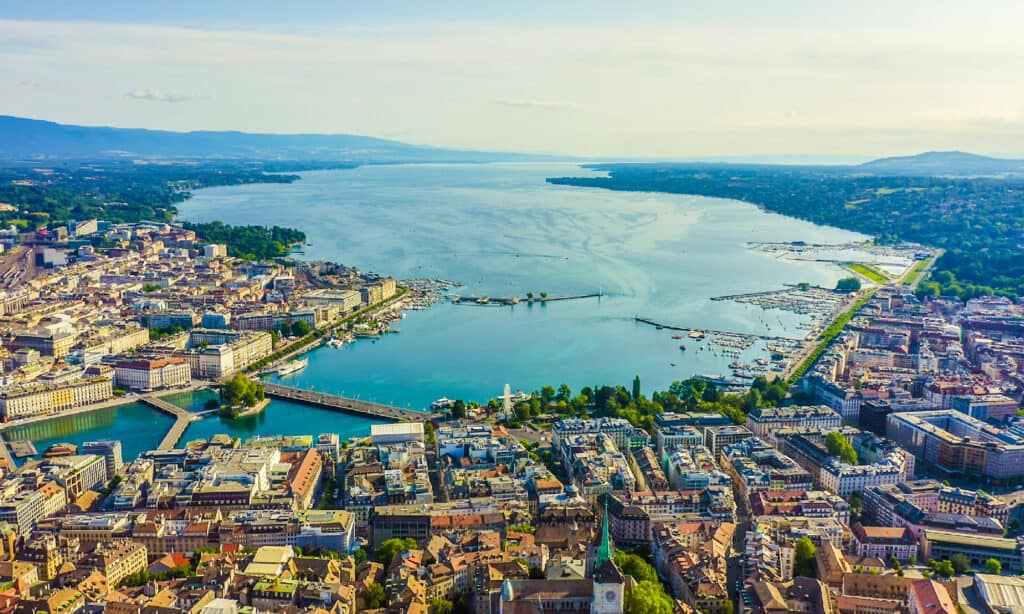
Switzerland has a whopping 7,000 lakes in the entire country.
©Maykova Galina/Shutterstock.com
Nearby Cities’ Sewage
Other culprits are the many cities that are lined up along Lake Geneva. Cities contribute to waste and much of that sewage waste, both treated and untreated, is unfortunately pumped into the lake. It is clear that the sewage contaminates the lake to the extent that it should be kept off-limits to humans (even though thousands still swim the lake each year). The sewage is also starting to kill off animals living in Lake Geneva, including ducks and swans.
People’s Trash
People’s trash also seems to be a huge problem. The environmental efforts of intergovernmental organizations have led to drives to clean up the lake. In doing so, they have found thousands of pieces of trash like pens, toys, and other human-related things. There are even bullets, bombs, and grenades at the bottom of the lake, dumped after World War II.
Other Very Polluted Lakes
Besides Lake Geneva, there are also other very polluted lakes in the world. Governmental action is required to ensure these lakes get cleaner. The brunt of the work should not be left up to independent organizations and charities, as they can only do so much. Let’s take a look at a few extremely polluted lakes.
Lake Karachay, Russia
Lake Karachay is located in the Ural Mountains and the biggest reason why it’s so polluted is because it has nuclear waste. Beginning in the 1950s, the Soviet Union used the lake as a nuclear waste dumping site. When the lake started to dry up in 1968, the radioactivity that flew up into the air created problems for millions of people living in that region. The radioactivity has caused cancer and other diseases.
Onondaga Lake, New York
Located in Central New York, Onondaga Lake is polluted because it was historically used as a sewage dumping site for Syracuse, New York. There are also high levels of hazardous chemicals in the lake because of several factories located along the lake. These companies have dumped various metals, compound chemicals, as well as pesticides.
Lake Tai, China
Also called Lake Taihu, Lake Tai is located in eastern China. It is one of the largest freshwater lakes in the country, but unfortunately, it has been heavily polluted for many decades. Tons of garbage, sewage, and animal waste have been dumped into the lake. While the government has repeatedly taken action to clean up the lake, it has not been effective and pollution has again swelled up in recent years.
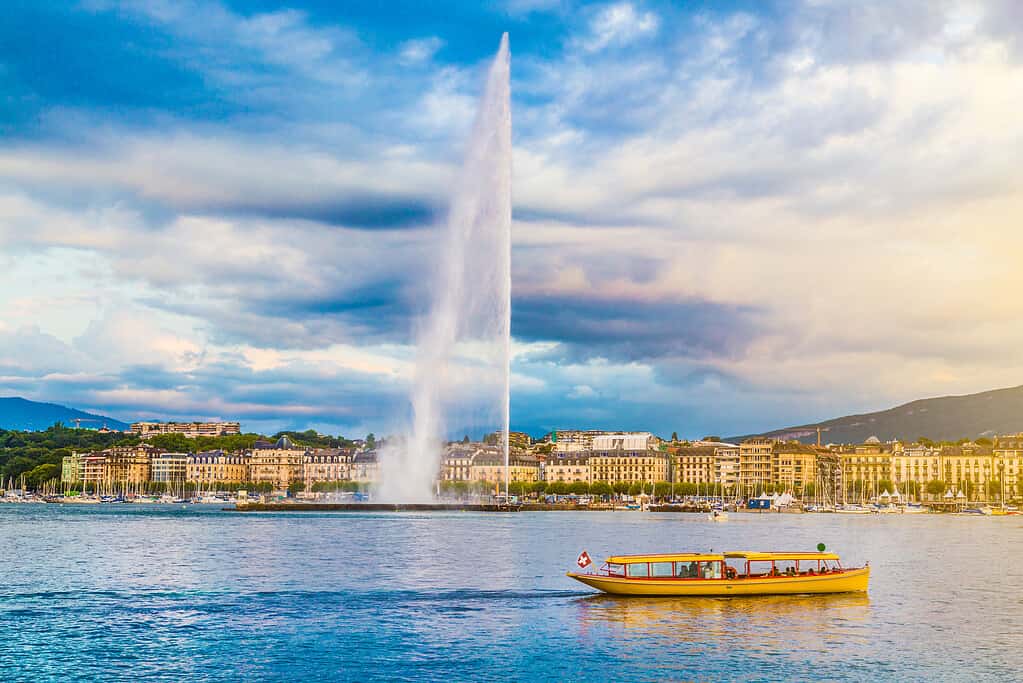
Switzerland is not part of the European Union and its currency is the Swiss Franc, however, it is part of the Schengen area.
©bluejayphoto/iStock via Getty Images
High Water Quality Lakes
Inversely, there are extremely clean lakes. There are three in particular that are pristine and clear. Two of them are located in countries where there are polluted lakes as well — Switzerland and Russia. Most of the cleanliness has come from independent organizations, but also from local governmental jurisdictions taking action to ensure they’re clean.
Lake Blausee, Switzerland
Even though Lake Geneva is polluted, not all lakes in Switzerland are. Lake Blausee is tucked away near the Kander River. It is one of the cleanest lakes in the country and in the world, as well. The lake is part of a trout farm, so that is one of the reasons why it is so pristine. Humans are not allowed to be in the lake, which always contributes to the cleanliness of bodies of water.
Lake Baikal, Russia
Nestled in Siberian Russia, Lake Baikal is one of the cleanest lakes in the world. Lake Baikal has a lot of gold medals, like being the largest freshwater lake in the world by volume and the deepest lake in the world. The lake is extremely diverse and the flora and fauna thrive in the lake. Although there was a factory near the river, it has since closed down, which greatly benefited the lake’s environmental health.
Blue Lake, New Zealand
Located in New Zealand’s Southern Alps, Blue Lake is the clearest freshwater lake in the world. Because it is in the Nelson Lakes National Park, Blue Lake, which is also called Rotomairewhenua in the Maori language, conservation efforts are strong. The government and other organizations have taken lots of strides to ensure the cleanliness of the lake.
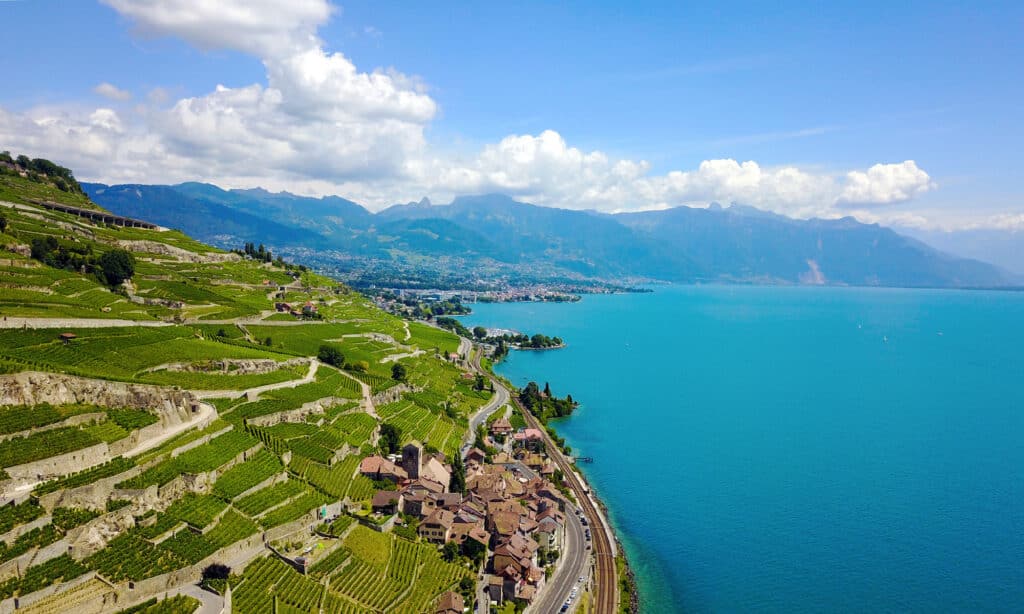
Although Zurich and Geneva are Switzerland’s largest cities, Bern is the country’s de facto capital city.
©iStock.com/Bogdan Lazar
Conclusion
And there you have it, Lake Geneva is polluted. The problem is quite severe and it has opened the eyes of several organizations and the Swiss government. They have established the Geneva Beat Plastic Pollution Dialogues, to come up with solutions and tackle the pollution problem in the lake. But there also has to be swift action in the form of policy changes from the Swiss government.
This problem is not going away. The great thing is that there are non-profit organizations tackling the problem already, paving the way for the Swiss government to finish the job. There is no doubt that the problem will be solved in the near future. It is imperative that Lake Geneva has a pristine water quality.
Thank you for reading! Have some feedback for us? Contact the AZ Animals editorial team.

